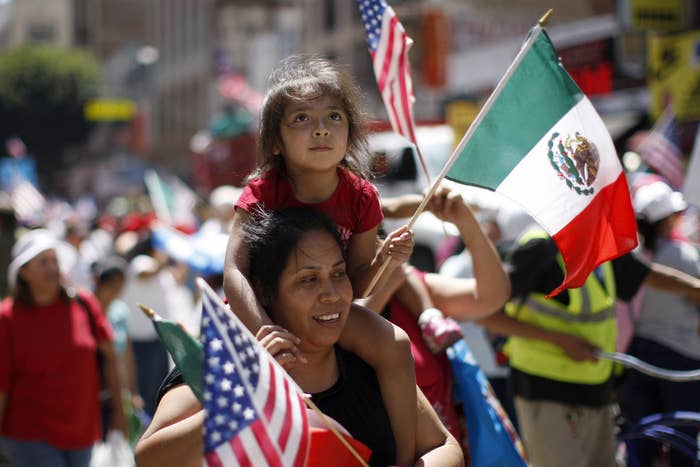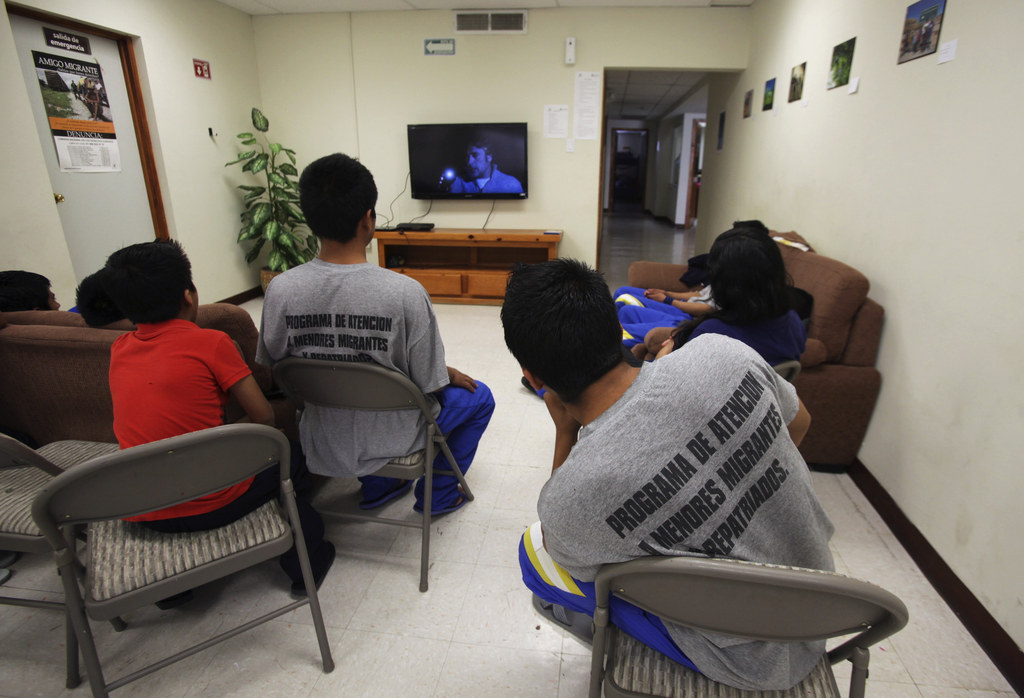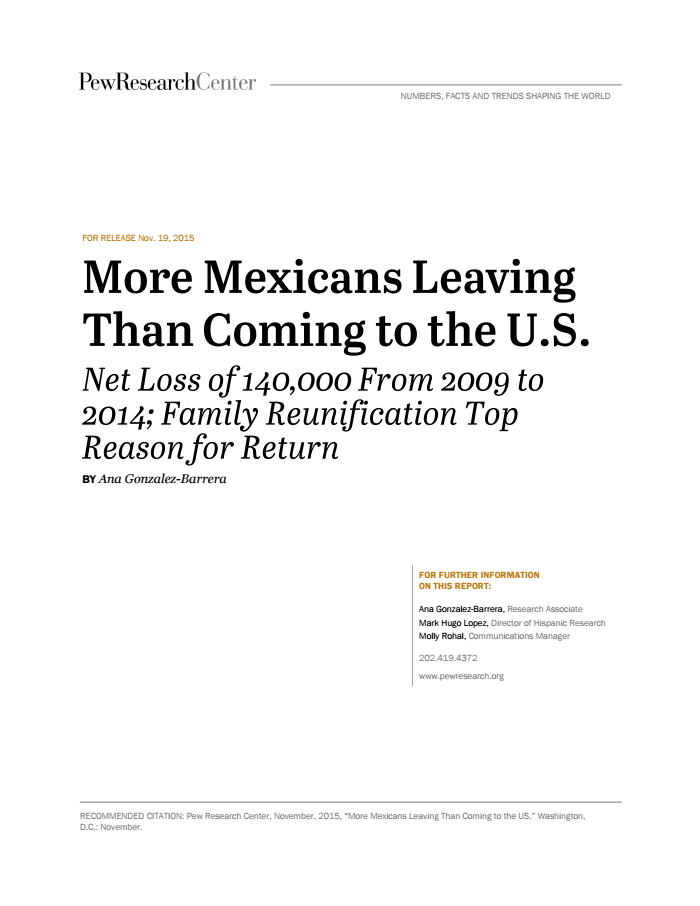
More Mexican immigrants have left the U.S. since the end of the Great Recession than have entered, with family reunification cited as being the top reason, according to a Pew Research Center analysis published Thursday.
From 2009 to 2014, researchers found that there was a net loss of 140,000 Mexican national in the U.S. — a finding that is sure to factor heavily into the U.S. presidential race, where immigration policy has proved to be an enduring and factious policy point.
"Every time we had a small crisis in the U.S. we saw a drop in the number of Mexican immigrants but it never went to having more people going back than coming in," said Ana Gonzalez-Barrera, author of the report. "This is the first time since the 1930s, when Mexican migration became the first source of immigrants to the United States, that the flow was reversed."
Five year ago the Pew reported the flow was at net zero for the first time, Gonzalez-Barrera said.
From 2009 to 2014, 1 million Mexicans and their families, including U.S.-born children, left to return to Mexico, according to data from the 2014 Mexican National Survey of Demographic Dynamics (ENADID). During the same time period, about 870,000 Mexicans traveled to the United States, according to census data.
Mexicans are the largest immigrant group in the U.S., accounting for 28% of all immigrants in the nation in 2013. The country also accounts for the largest undocumented immigrant population in the U.S., the Pew Research Center reported.
Analysts noted that measuring migration flows between Mexico and the U.S. is challenging because there are no official counts for how many Mexican immigrants enter and leave the United States.

In addition to the desire to reunite families, the slow recovery of the U.S. economy after the Great Recession — and poor job prospects — may have caused some Mexicans to leave, researchers said. Stricter enforcement of immigration laws may have also made it harder for Mexicans to enter the U.S.
Gonzalez-Barrera said a small fraction of those who went back, about 14%, returned to Mexico because they were deported. The Pew Research Center previously reported that U.S. border apprehensions of Mexicans have fallen sharply to just 230,000 in fiscal year 2014, a level not seen since 1971.
At the same time the U.S. Department of Homeland Security reported an increase in the number of Mexican immigrants who have been deported from the country since 2005.
When researchers surveyed people in Mexico, they also found that their views on life north of the border are changing. While almost half believe life is better in the U.S., a growing number believe it’s wash.
About 35% said they would move to the U.S. if they had the opportunity and means to do so, but that fell to 20% among those who said they would do so without authorization, the Pew Research Center reported.
Gonzalez-Barrera said they found a rise in the number of undocumented immigrants from Asia. Adding that most of the loss of Mexican immigrants were undocumented.
"This is going to have a effect on the overall immigrant population in the U.S.," Gonzalez-Barrera said. "It's going to become more legal than it was and probably have an impact on the immigration debate."

The findings comes as the Washington Office on Latin América (WOLA), in conjunction with shelters and organizations that help migrants, reported that Mexico detained 73% more migrants since increasing enforcement along its southern border and roads used by migrants throughout the country.
Their analysis found that between July 2014 and June 2015, about 168,000 migrants were detained by Mexican authorities, compared to 97,000 during the same period the previous year.
Mexican officials said they created the Southern Border Program in an effort to bring order and protect the human rights of migrants.
WOLA said increased enforcement was forcing migrants to take alternative and more dangerous routes, making it harder for human rights groups to reach them.
“If the government of Mexico continues to carry out migration enforcement with the same methods, policies, and corrupt authorities, it is likely that we will know less and less about what happens to migrants during their journey,” WOLA said.

